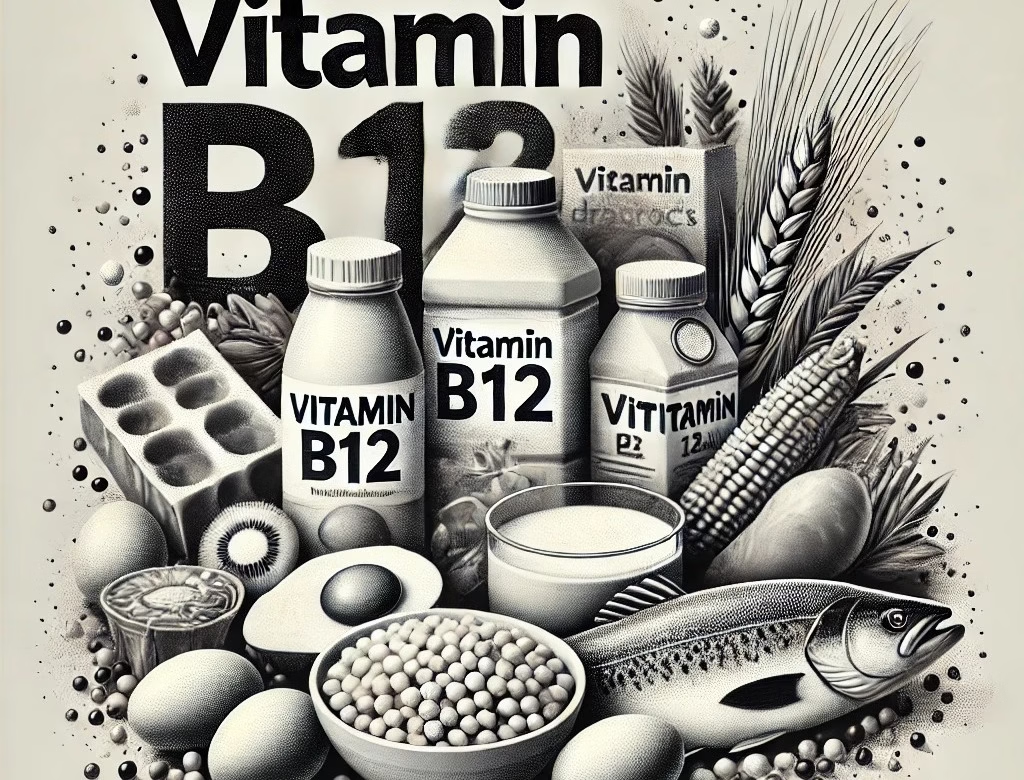Vitamin B12 deficiency is a growing concern, especially among working professionals, with research indicating that over 57% of male employees suffer from inadequate levels of this essential nutrient. Vitamin B12 plays a critical role in energy production, nerve function, and red blood cell formation.
A deficiency can lead to fatigue, weakness, memory issues, and long-term neurological problems. Since the body does not produce B12 on its own, dietary modifications are necessary to maintain optimal levels. Here are six diet changes that can help improve vitamin B12 levels and enhance overall well-being.
Include More Animal-Based Protein For individuals who consume animal products, increasing the intake of B12-rich foods like lean meats, poultry, and fish is an effective way to prevent deficiency. Beef liver, chicken, turkey, and seafood such as salmon, tuna, and sardines are excellent sources of this essential vitamin. Regular consumption of these foods ensures a steady supply of B12 to support energy metabolism and cognitive function.
Incorporate Dairy and Eggs Dairy products like milk, yogurt, and cheese contain significant amounts of vitamin B12. Adding these to the diet can help improve B12 levels, especially for those who do not consume meat. Eggs, particularly the yolk, are another valuable source. A balanced intake of dairy and eggs provides additional nutrients such as calcium and protein, further supporting overall health. Opt for Fortified Foods For vegetarians and individuals who limit animal products, fortified foods serve as an essential alternative. Many plant-based milk options, including soy, almond, and oat milk, are fortified with B12. Breakfast cereals, nutritional yeast, and fortified plant-based meat substitutes also provide an accessible source of this vitamin.
Checking food labels for B12 fortification ensures that dietary choices support adequate intake. Increase Intake of Nutritional Yeast Nutritional yeast is a popular option among vegetarians and vegans looking to boost their B12 levels. It has a cheesy, nutty flavor and can be sprinkled over salads, soups, and pasta dishes. Many brands fortify nutritional yeast with B12, making it an excellent supplement for those with dietary restrictions. Regular consumption can contribute to maintaining optimal levels of this vital nutrient. Consider B12 Supplements For individuals struggling to meet their daily B12 requirements through diet alone, supplementation is a practical option.
Vitamin B12 supplements come in various forms, including tablets, sublingual drops, and injections. Those with severe deficiencies or absorption issues may benefit from higher-dose supplements prescribed by a healthcare professional. Consulting a doctor before starting supplementation ensures the right dosage based on individual needs. Improve Gut Health for Better Absorption The body’s ability to absorb vitamin B12 depends on gut health. Poor digestion, inflammation, and conditions like gastritis or acid reflux can hinder absorption.
Consuming probiotic-rich foods such as yogurt, kefir, and fermented vegetables helps support gut bacteria, improving the body’s ability to absorb essential nutrients, including B12. Reducing processed foods, alcohol, and excessive caffeine intake also enhances digestive function and nutrient uptake. Making these dietary adjustments can significantly improve vitamin B12 levels, boosting energy, cognitive function, and overall well-being. Whether through animal-based foods, fortified plant-based options, or supplementation, ensuring adequate B12 intake is essential for maintaining long-term health and preventing deficiency-related complications.







